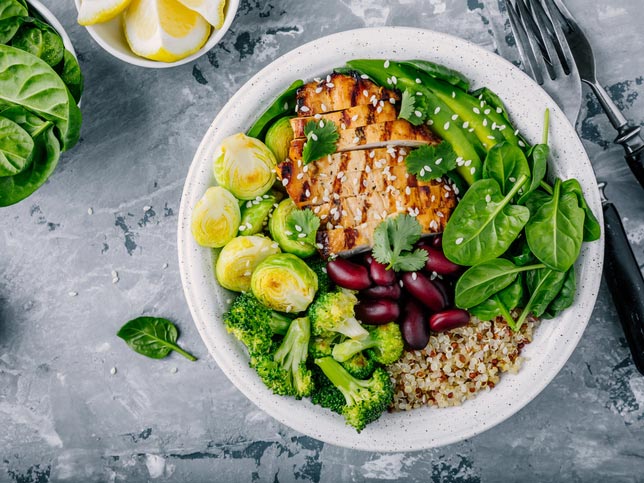- Empty cart.
- Continue Shopping
The Importance of Portion Control

In a world where portion sizes have steadily increased over the years, practicing portion control has become crucial for maintaining a healthy diet and managing one’s weight. Portion control is not about restricting oneself but rather about being mindful of the quantity of food consumed.
Understanding Portion Control
Portion control refers to the practice of moderating the amount of food you eat during a meal or snack. It involves being conscious of portion sizes and avoiding overeating, which can contribute to weight gain and various health issues.
The Benefits of Portion Control
- Weight Management: One of the primary benefits of portion control is its role in managing body weight. When you consume appropriate portion sizes, you are less likely to consume excess calories, which can lead to weight gain. It helps create a balance between the calories you consume and the calories you burn through physical activity.
- Balanced Nutrition: Portion control encourages a balanced intake of essential nutrients. When you focus on portion sizes, you are more likely to include a variety of foods in your diet, ensuring you receive a wide range of vitamins, minerals, and macronutrients.
- Blood Sugar Regulation: For individuals with diabetes or those at risk of developing the condition, portion control is vital for managing blood sugar levels. Consistently consuming appropriate portion sizes can help prevent spikes and crashes in blood sugar.
- Digestive Health: Overeating can strain the digestive system, leading to discomfort and digestive issues like indigestion and heartburn. Portion control can promote better digestive health by allowing your body to process food more efficiently.
- Psychological Well-being: Portion control can foster a healthier relationship with food. It encourages mindful eating, helping you become more attuned to hunger and satiety cues, which can reduce emotional or stress-related eating.
- Financial Savings: Controlling portion sizes can also save you money by reducing food waste and the need for frequent dining out or takeout.
Practical Tips for Portion Control
Now that we understand the importance of portion control, let’s explore some practical strategies to incorporate it into your daily life:
1. Use Smaller Plates and Bowls
Opt for smaller plates and bowls when serving meals. Research shows that people tend to eat more when they use larger dishes, as they subconsciously fill them up.
2. Measure Your Food
Use measuring cups, kitchen scales, or portion control tools to accurately measure your food. This can help you become more aware of proper serving sizes.
3. Read Food Labels
Pay attention to food labels, which often indicate portion sizes and the number of servings per container. Be mindful of the serving size listed and compare it to what you actually consume.
4. Practice Mindful Eating
Slow down during meals, savor each bite, and pay attention to your body’s hunger and fullness cues. Eating mindfully can help you recognize when you are satisfied, preventing overeating.
5. Avoid Eating Directly from Packaging
Pour snacks like chips, nuts, or cereal into a small bowl instead of eating from the bag or box. This makes it easier to control portions and avoid mindless eating.
6. Share Entrées at Restaurants
Many restaurant portions are larger than what most individuals need in one sitting. Consider sharing an entrée with a dining companion or requesting a to-go container for leftovers before you start eating.
7. Pre-Portion Snacks
Divide snacks into individual portions before eating. This can prevent you from consuming an entire bag of chips or a whole chocolate bar in one go.
8. Be Mindful of Liquid Calories
Watch out for sugary drinks, such as sodas and fruit juices, which can contribute to excessive calorie intake. Opt for water, herbal tea, or unsweetened beverages when possible.
9. Practice Self-Awareness
Regularly assess your portion sizes and eating habits. If you notice a pattern of overeating, take steps to correct it and recommit to portion control.
Finally, Portion control is a fundamental aspect of maintaining a healthy diet and promoting overall well-being. By being mindful of portion sizes, you can manage your weight, ensure balanced nutrition, regulate blood sugar, and develop a healthier relationship with food. Incorporating practical tips like using smaller plates, measuring food, and practicing mindful eating can help you make portion control a sustainable and effective part of your daily life. Remember that portion control is not about deprivation but about finding balance and enjoying food in a way that supports your health and vitality.








